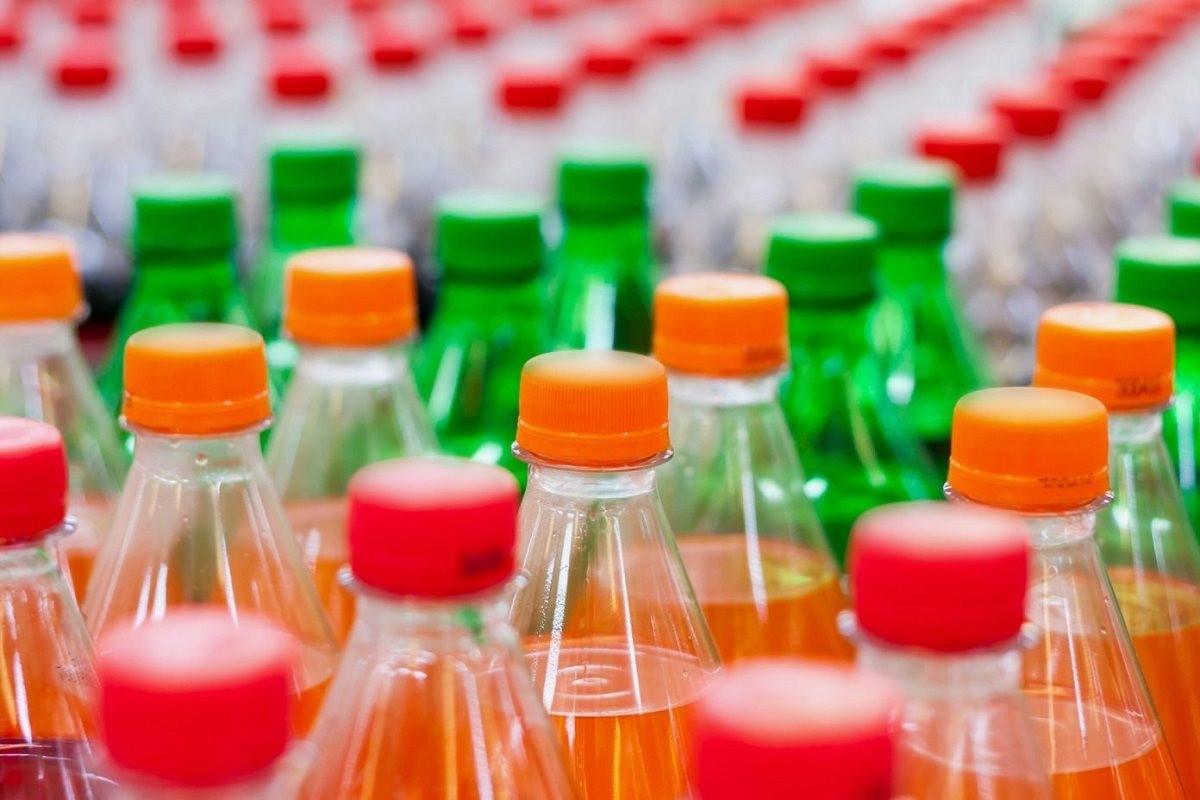June 14, 2025 | 03:54 GMT +7
June 14, 2025 | 03:54 GMT +7
Hotline: 0913.378.918
June 14, 2025 | 03:54 GMT +7
Hotline: 0913.378.918

According to a draft by the Ministry of Finance, sugary soft drinks could be subject to a 10% excise tax.
Currently, there is no special consumption tax on sugary soft drinks in Vietnam. This product is only affected by the 10% value-added tax. Therefore, experts from the World Health Organization (WHO) have proposed four options for imposing special consumption taxes on sugary drinks to protect the health of future generations.
The Ministry of Finance is developing a draft Law on Special Consumption Tax which will be revised to expand taxable objects, including sugary soft drinks. According to the explanation of the Ministry of Finance, this is to reduce the risk of disease and the medical burden of non-communicable illnesses, namely overweight and obesity.
This is not the first time the Ministry of Finance wants to impose an special consumption tax on these items. Previously, this proposal was also made with a specific tax rate of 10%, but many ministries and branches opposed it.
According to Assoc., Prof. Dr. Dinh Trong Thinh, an economic expert, developed countries and high obesity rates are gradually implementing special consumption tax on sugary soft drinks.
If 2012 only about 15 countries were taxing sugary soft drinks. At least 67 countries/territories tax sugary drinks, of which 56 countries impose special consumption taxes, 9 charge import duties, 2 impose tariffs on goods and services. In which there are developed and developing countries such as the US, UK, France, Germany, Japan, China, India, Russia... 7 out of 10 countries in the ASEAN region have applied special consumption tax on sugary soft drinks.
Denmark and Norway have abolished this tax policy because it has no significant impact on consumers' health, causing adverse socio-economic effects. California, USA, also passed a bill that prevents its municipalities from passing taxes on beverages and food for 12 years from June 2018.
Sugar contributes just over 3% of total energy intake from food and beverages, according to the ASEAN Nutrition and Food Security Report 2021. Energy mainly comes from cereals (more than 50%) and meat (more than 15%). The average calorie content in 100ml of sugary beverage (about 40 Kcal) is much lower than that of confectionery (more than 400 Kcal) or ready-made products such as pate, canned pork, and ham (all more than 300 Kcal).
According to the World Health Organization (WHO), obesity is caused by an imbalance between energy intake and expenditure. Specifically, the consumption of high-calorie foods while lacking physical activity. This is considered the leading cause of overweight and obesity.
The ASEAN Food Security and Nutrition 2021 report also shows that 86.3% of Vietnamese teenagers aged 11 to 17 lack physical activity. In addition, screen time on holidays is the cause of increasing the risk of overweight and obesity in students.
A survey by the Institute of Nutrition showed that students in urban areas had a rate of overweight and obesity two times higher than that in rural areas (41% and 18%). Still, the rate of soft drink consumption among children in urban areas was lower (16% and 22%).
Statistics show that the production and consumption of sugary drinks have increased sharply over the years. In 2018 it increased by 5.15% compared to 2017. In 2019 it increased by 4.9% compared to 2018; in 2020, it increased by 4.5% compared to 2019; In 2021, it increased by 4.2%. In 2022, the Vietnamese consumed more than 10 billion liters, with an increase of more than 5% compared to 2021.
Currently, the Government applies some tax incentives to the sugar industry, such as a value-added tax of 5%; also, it uses the policy of tariff quotas, anti-dumping and anti-subsidy measures for imported sugar.
If special consumption tax is applied on sugary products, more than 300,000 households growing sugarcane will be directly and indirectly affected.
The sugarcane and other supporting industries such as retail, packaging, and logistics are also affected if sugary soft drinks are taxed with a 10% special consumption tax. Due to rising costs, many businesses may adjust their strategy at the regional level to import instead of producing in Vietnam.
According to the Central Institute for Economic Management, the industry's revenue is estimated to decrease by VND 3,100 billion while state budget revenue only increases by two-thirds, at VND 2,200 billion.
This coincides with a study conducted by the European Commission. Accordingly, the taxation of foods or beverages high in fat, sugar, or salt in the EU leads to increased administrative costs, underemployment, and high food costs but little impact on people's health.
Translated by Ha Phuc
/2025/06/13/5330-2-004539_953.jpg)
(VAN) Changing policy mindset and removing investment barriers are urgent requirements to open up new development space for enterprises in the agricultural sector.

(VAN) The areas include the restoration of five million hectares of marine ecosystems.

(VAN) Dr. Le Van Nguyen, Director of the Institute of E-Commerce Management (ECM), emphasizes the potential for green development through the cultivation of fruit trees, particularly in provinces such as Son La.

(VAN) VAAS and numerous Vietnamese enterprises have signed cooperation agreements with Japanese partners to promote agricultural technology and trade connectivity.
/2025/05/29/5625-12-214801_567.jpg)
(VAN) Provincial mergers in the Mekong Delta promise to streamline administration, expand inter-provincial raw material areas, and foster close linkages in agricultural value chains, benefiting both businesses and cooperatives.

(VAN) Merging Mekong Delta provinces contributes to the expansion of agricultural raw material areas, addressing previous constraints caused by provincial boundaries. Additionally, this expansion will reduce costs and strengthen linkages between businesses, cooperatives, and farmers.
/2025/05/29/1043-2-153730_145.jpg)
(VAN) The Government's policy to merge provincial-level administrative units opens up major opportunities for the Mekong Delta region to reshape its agricultural development strategy toward large-scale production, effective regional linkages, and sustainability.